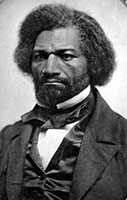Mark Twain, as only that great American could, once superbly defined education as “the path from cocky ignorance to miserable uncertainty.”
Years later, the rarely uncertain Donald Trump signaled possible agreement with Twain by observing: “It doesn`t hurt to get more education.”
Last week, the president made a strange reference to his White House predecessor and personal hero, Andrew Jackson, with whom he feels political kinship. He suggested Jackson was strongly opposed to the American Civil War and might have averted it, although Old Hickory died 16 years before the War Between the States began in 1861.
Trump’s infelicitous comments allowed The New York Times to sniff: “If nothing else, President Trump has already secured a place in history. It is his grasp of history that seems less secure.”
Question: Must a U.S. president also be an accomplished historian to be successful?
Learning on the Job
My former colleague in the U.S. House of Representatives, former House Speaker Newt Gingrich, defended the president, saying: “Trump’s an extraordinarily successful, entrepreneurial personality who learns what he needs to know when he needs to know it. Trump is learning history as he governs.”
He might have added that the president has enjoyed massive support from those less educated. Hillary Clinton had a huge 25% lead among college-educated voters.
For those of us who hail from Maryland’s Eastern Shore, a far more egregious historical Trumpism involved our local hero, Frederick Douglass.
Earlier this year, the president seemed to imply that this great abolitionist, who died in 1895, was still alive.
Educationally Disadvantaged
 Perhaps the president shares the politically correct confusion about the dates of the Civil War, even as statues honoring Confederate heroes are removed from pedestals in New Orleans in the middle of the night.
Perhaps the president shares the politically correct confusion about the dates of the Civil War, even as statues honoring Confederate heroes are removed from pedestals in New Orleans in the middle of the night.
There may be a logical explanation for the president’s seeming ignorance of American history. In his inaugural address, Trump said the U.S. has “an education system flush with cash but which leaves our young and beautiful students deprived of all knowledge.”
Could our president be one of millions of badly educated students in elementary and high schools who consistently have scored poorly in both history and civics courses?
About two-thirds of a national sample of 11,200 students tested below proficient in civics and history on the Nation’s Report Card assessments in 2006, 2010 and 2014. Just 18% scored at a level considered proficient in U.S. history, and 23% did so in civics.
Most fourth-graders were unable to say why Abraham Lincoln was an important American figure. No wonder Trump seemed impressed that Lincoln, often judged by historians as the greatest president, was a Republican … in fact, the first Republican Party president.
Trump grew up in Queens, New York, where he attended the Kew-Forest School from kindergarten through seventh grade. At age 13, Trump’s parents enrolled him in the New York Military Academy. Both offer numerous American history and civics courses, as do Fordham University and the University of Pennsylvania’s Wharton School, where Trump studied for his undergraduate degree.

Frederick Douglass
Only one-third of Americans can name the three branches of our federal government: executive, legislative, judicial. Trump shares this worrisome lack of understanding of the U.S. Constitution.
Some suggest that Americans think much of what we learn in school is useless. Realizing that the chance that one vote will make a difference is small (about one in 60 million in a presidential election), why waste valuable Facebook and Twitter time remembering dead history and studying complex government policies?
In “The Blessings of Liberty and Education” (1894), my fellow Talbot County, Marylander, Frederick Douglass, gave us this warning:
Without education, he lives within the narrow, dark and grimy walls of ignorance. […] Education, on the other hand, means emancipation. It means light and liberty. It means the uplifting of the soul of man into the glorious light of truth, the light only by which men can be made free. To deny education to any people is one of the greatest crimes against human nature. It is easy to deny them the means of freedom and the rightful pursuit of happiness and to defeat the very end of their being.
Yours for liberty,

Bob Bauman, JD
Chairman, Freedom Alliance
P.S. You can continue your own education with my recently updated Passport Book. Having a second passport is a key to unlock your freedom and protect your liberties, and my Passport Book provides an in-depth look at more than 80 countries. Take that next step toward freedom by clicking here to claim your copy.



